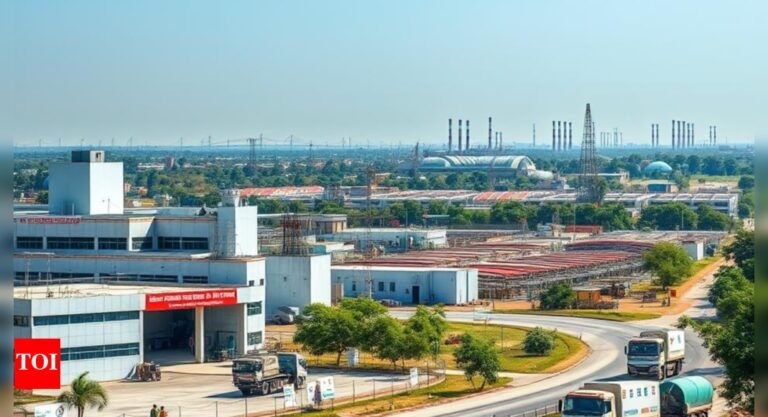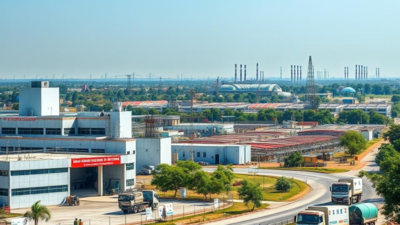Accelerating the rollout of plug-and-play industrial parks, improving logistics infrastructure, and targeted skilling are essential for boosting India’s manufacturing output and self-reliance, according to real estate consultancy Cushman & Wakefield.In its latest report, Elevating India’s Manufacturing Resilience: Charting the Path to Self-Reliance, based on responses from 94 senior decision-makers across India’s manufacturing and logistics sectors, the consultancy outlines how industry and policy alignment is unlocking capacity, especially for MSMEs.“India’s manufacturing sector is undergoing a structural shift. Our findings indicate a strong alignment between infrastructure investment, policy clarity, and industry intent,” said Gautam Saraf, Executive Managing Director, Mumbai & New Business at Cushman & Wakefield, PTI quoted.Saraf said 88% of manufacturers surveyed are scaling up due to improved infrastructure, and 95% cite better logistics access thanks to government-backed initiatives. However, sustaining this momentum will require “addressing deep-rooted cost and capacity gaps, especially in logistics, integrated facilities, and MSME productivity.”The report flags four core challenges: high logistics cost, warehousing capacity shortfall, low value addition, and skill gaps. It recommends a five-pronged strategy—accelerating plug-and-play industrial parks, redefining MSME thresholds to foster scale, fast-tracking multimodal logistics parks, boosting skill development, and digitising MSME export support.“Plug-and-play industrial parks, multimodal logistics networks, and improved land aggregation frameworks are not just enablers, they are essential levers for converting policy momentum into production-ready outcomes,” Saraf said.Abhishek Bhutani, Managing Director, Logistics & Industrial Services India and Head – Gujarat, Cushman & Wakefield said, “Pre-approved, infrastructure-ready zones are helping reduce time-to-market, lower upfront capex, and mitigate operational risks—especially for MSMEs looking to scale.”He added that success for companies expanding into new regions will depend on access to integrated ecosystems combining logistics, skilled labour, and multimodal connectivity, PTI reported.
Trending
- IPO watch: Hero Motors refiles IPO papers with Rs 1,200 crore issue, ups fresh component to Rs 800 crore
- Who is Kesavan Ramachandran? RBI elevates internal veteran to executive director, to oversee prudential regulation
- India-US trade deal: Talks enter sixth day as Donald Trump’s tariff deadline looms; top things India is pushing for amidst hectic negotiations
- Infosys vs Cognizant fight gets uglier! Why are the two big IT firms battling it out in the US? Explained
- Layoff wave spreads across US: Starbucks, FedEx, Frito-Lay, Microsoft may axe jobs in July – here’s what’s going wrong
- Cryptocurrency market today: Bitcoin holds near $107k amid tariff caution, Altcoins see mixed moves
- US Fed policy outlook: Fed chair Jerome Powell says central bank must remain ‘non-political’ as Donald Trump pressure mounts, rate cut still not ruled out
- HDB Financial IPO listing: Stock set for market debut on July 2; check GMP and other details
- Total sown area this monsoon: Kharif sowing jumps 11.3% on strong monsoon; rice and pulses lead acreage surge
- Leadership shuffle: Tata Sons ropes in consumer veterans to Tata Digital board; balances earlier finance-centric line-up



